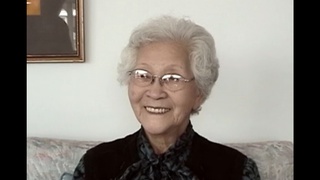Interviews
Respecting the will of a five-year-old daughter (Japanese)
(Japanese) It might have been when Nakako was around five. I was thinking I would do my best to teach her Japanese, but she told me not to. “What do you mean?” I asked her. “It’ll help you in the future. Just learn some Japanese. I’ll teach you,” I told her. She was only five years old, and even though she was so tiny, she told me, “I won’t say sorry I didn’t learn Japanese.” Then, “Please try not to teach me.” So, from that moment on, I didn’t teach her any Japanese.
Now, she complains to me about it. “Why didn’t you teach me?” she says. “You were the one who said, ‘Don’t teach me any Japanese,’ weren’t you?” I tell her back. And she answers, “But who takes such a small child’s opinion so seriously?”
Date: January 26, 2012
Location: California, US
Interviewer: John Esaki, Yoko Nishimura
Contributed by: Watase Media Arts Center, Japanese American National Museum










